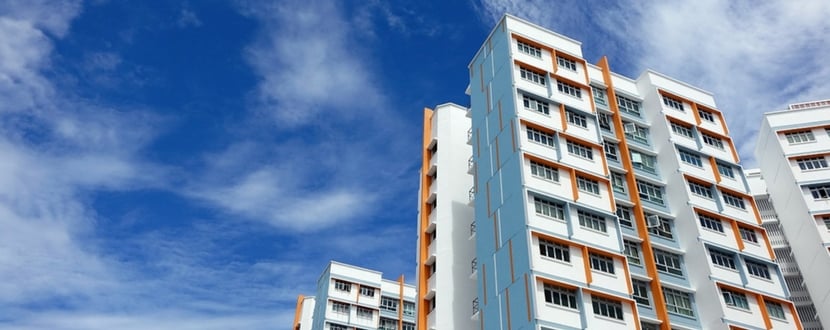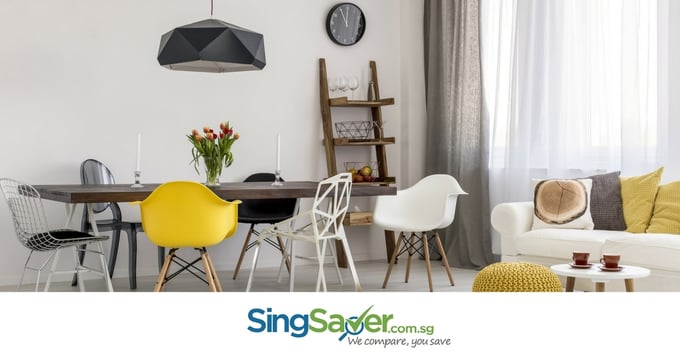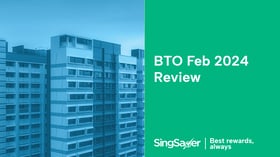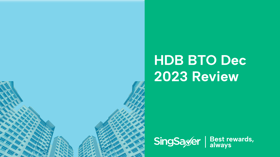Between buying a build-to-own (BTO) flat or executive condominium (EC) in Singapore, a BTO flat may be a more prudent choice.
Many Singaporeans aspire toward an Executive Condominium (ECs), and it’s quite the deal: few other countries have public housing programmes that subsidise a condo!
But even if an EC is within reach, does that mean you should always go for them? It really depends on your financial situation.
Differences Between an EC and a Regular Old BTO Flat
An EC is different from a Built to Order (BTO) flat, in that it’s built by private developers. An EC is a full suite condo. It comes with the pool, gym, barbeque pits, and other facilities you would expect of a private development.
BTO flats are the standard HDB deal: a place to stay, and the usual void deck, resident’s committee, estate recreational centres, etc.
Unlike BTO flats, ECs become fully privatised after 10 years. Like other forms of private property, they can be sold even to foreigners or organisations. This widens the pool of prospective buyers and raises the odds of selling for a profit. There are restrictions on who can buy an HDB flat, and foreign buyers are definitely out of the question.
See Also: How to Save Money for a Flat Before Your 35th Birthday
Even then, some Singaporeans may be better off with BTOs rather than ECs. Here are the potential benefits of that:

1. Financial Prudence
Just because you can qualify for an EC, doesn’t mean you need to splurge on one. A four-room BTO flat can be had for as little as S$400,000 (depending on the location), whereas ECs will generally be in the S$600,000 range.
A highly cost means higher monthly repayments, and greater financial burdens on you. Given that a home loan lasts from 25 to 30 years, the more expensive EC is a burden that may last till retirement.
While the EC may look nicer, consider that the price difference may be enough to send your children through university or a larger retirement fund.
2. You Need to Use a Private Bank Loan for an EC
Because an HDB Concessionary Loan can’t be used for an EC, you have to take a private bank loan. The good news is that, since 2008, bank loans have been cheaper than HDB loans (around 1.8 per cent, compared to 2.6 per cent per annum).
But this low rate is a result of the Global Financial Crisis in 2009. There is no guarantee that these low rates will continue and for how long. It is worth noting that the home loan interest rate, before the financial crisis, may reach as high as four per cent.
As you will be paying the loan for a good 25 to 30 years, it pays to look further down the road: while bank loans may be cheaper now, they may be more costly later.
It is also worth noting that the HDB is more forgiving in case you can't pay your mortgage. HDB is committed to providing public housing, whereas a bank has to act as a business and uphold the interests of depositors and shareholders.
If you get into financial difficulties, HDB may be able to restructure or stretch out your mortgage. A bank cannot do so and will repossess your home, as it has a corporate responsibility to act that way.
3. You Can Always Upgrade to an EC Later
Rather than stretch yourself to get an EC now, you could take a safer and more stable route. Save money by buying a BTO flat, and set aside funds over the next decade or so.
When the time is right, you can consider selling your BTO, and then combining the proceeds with your savings to get a condo. Many Singaporeans upgrade this way, starting from a BTO flat and moving to private property.
They are able to save and invest better, as they do not have to commit as much to repaying their home loan. It’s certainly worth thinking about, before going for an EC.

4. Home First, Investment Second
It is probably true that, in the long run, the resale gains of an EC will be higher than the resale gains of a BTO flat. This is probably because an EC can be sold to a wider pool of buyers, and because ECs are private condos that were bought with subsidies (check the HDB website for more details).
But if you’re buying a flat to live in it, leave issues like capital gains to property investors. Homeowners should be focused on comfort and on affordability. If you are going to live in the unit for life, why worry so much about how much it sells for?
Treating your home as an investment is something of a dangerous bet. Consider that the typical home loan repayment on an EC is around S$2,200 a month. (This is not an exact figure as it varies based on the loan quantum, the loan tenure, and so forth. But it is a fair estimate of your typical EC.)
Along with maintenance costs of S$200 a month, you would be paying around S$28,800 per annum. Home prices may not rise to match this consistent cost.
As such, you may want to be practical and put dream profits out of your mind. A BTO means having more money in your pocket right now.
5. EC Living Isn’t HDB Living
While ECs may be HDB properties for the first 10 years, they are very much the equivalent of private condos. This means the essential qualities of HDB living, such as hanging out in the void deck or the resident’s centre, are not part of the deal.
Singaporeans who prefer the communal feel of HDB living may want to opt for BTOs, if they’ve grown comfortable in that environment.
Read This Next:
Avoid Buying a Flat in Singapore After Getting Married
5 Questions You'll Regret Not Asking When You Buy Your First Flat
Similar articles
Upcoming EC, Condo Launches In 2020 To Consider If You Are Planning For A New Home
2023 Guide To Executive Condominiums (EC) In Singapore
BTO versus Resale Flat: How Much Will Renovations Cost?
How Much Do You Need To Buy Your First Home In Singapore?
BTO Vs Resale Vs EC: Which Gives The Best Bang For Your Buck For Investment?
Who Should Buy an Executive Condominium?
5 Reasons Why Executive Condominiums Could Make A Better Investment Despite Rising Inflation
Upgrading From HDB to Condo – Pros and Cons










